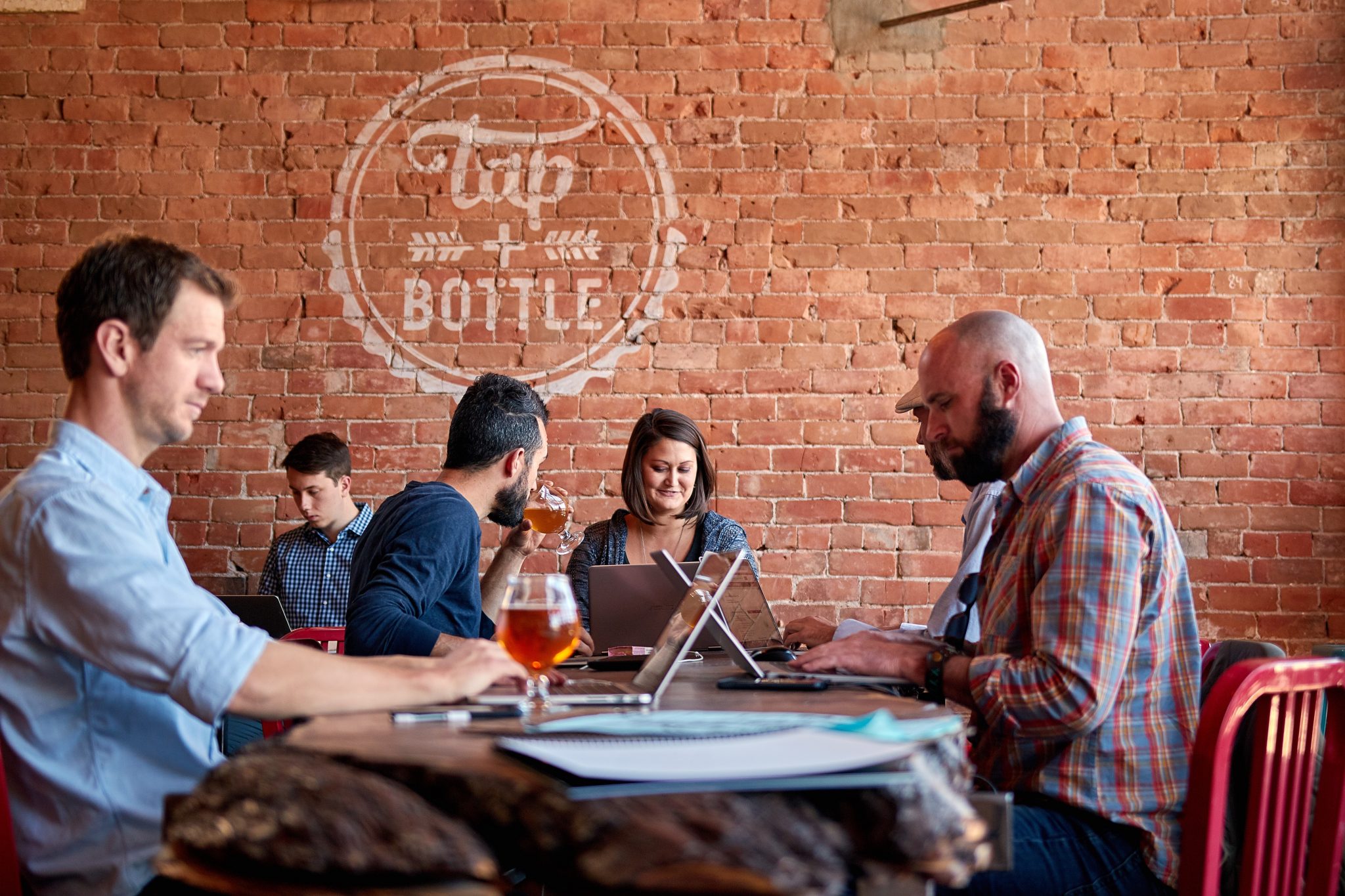When the first co-working spaces opened at the beginning of the decade, the concept sounded like a promising alternative to gray office life with sealed rooms and booths. Knowledge transfer with other entrepreneurs, free beer and a cozy atmosphere initially attracted freelancers and startups to share their work with others. While the Berlin factory with its designer furniture and its US competitor Wework lured it to an exclusive location, the employees of the digital units and ventures of major car manufacturers and industry are now in the ball pool and island kitchens.
An incredible growth
A thoroughly designed interior and the exclusive location have their price – for operators as well as for tenants. The coworking chain Wework (to rename itself soon in The We Company) still does not write black numbers. The IW Immobilienscout24 index from last year shows that the growth expectations of real estate regarding coworking spaces are still high. The global real estate service provider JLL estimates that in 2030 already 30 percent of all office space could be accounted for by flexible concepts such as coworking, the Handelsblatt reported.
A Berlin-based company wants to benefit from this
The creators of the Unicorn Coworking Spaces are not only constantly opening up new spaces, but also claiming that they are already profitable. We talked to founder and publisher Masoud Kamali and CEO Florian Kosak about the concept. When visiting the Unicorn Workspace AEG Höfe in Berlin, one thing in particular became clear: The trend is back to separate working areas and a white-gray ambience. To do this, the operators opt for more environmentally sustainable offers and serve niches.
The whole interview
Masoud, you started in 2015 with a small café near the Rosenthaler Platz in Berlin, where there were only a few jobs in the background. How did you start with the Unicorn concept back then?
It was a lab to gauge what people actually expect from a coworking space. From the beginning there was healthy food and good organic coffee. There was plenty of room to work, and a meeting room. It turned out that the people wanted to work there first and then it was about events and food.
Florian, can you explain more exactly how you developed the business model?
We experimented a lot. Parallel to the first location, we have opened a location for large events and a café with workstations. But only with the fourth location, the Unicorn Workspace in the AEG Höfe, we had refined our concept so that it was also accepted with great demand. We will now open it in other locations in the same style.
How did you come together as a business partner?
Florian Kosak: Berlin is a village. Masoud invested in a startup in 2013 where I was a founder. We have come to appreciate him, me as a consultant and me as the managing director. Then, four years later, he asked me if I wanted to run the three Unicorn Spaces, because you could do more about it. At the time I even looked at many coworking spaces like Rent24, Wework or Mindspace for my startup and got to know these providers from the customer’s point of view. And I thought: they are all very expensive. Which startup can afford a table from 500 euros upwards please? After a few weeks we realized that another concept for coworking spaces could be made possible. I joined Masoud as co-founder.
Are there other investors next to you, Masoud?
In addition to my investment company WestTech Ventures, well-known investors such as Lukasz Gadowski, Matthias Spies, Florian Heinemann, Jens Hilgers and several others have joined.
How much capital has flowed into Unicorn?
Masoud Kamali: A mid single-digit millions. The next round will be double digits. But we do not need so much money, because the existing spaces already throw off money.
Cossack: We do not have a classic burn rate. We would not have a problem, even if there was no investment. Every euro is invested in new land because the existing land is profitable.
You want to open more coworking spaces. What is the utilization of existing areas?
Cossack: On average, it is 90 percent. But that does not include the spaces we opened this month. The land takes two to three months to reach the 90 percent target. After three months, a space is usually cash flow positive.
It sounds like you have to make some savings elsewhere.
Cossack: We are extremely cheap in the expansion costs. For example, if we build a space like this (Unicorn Workspace AEG Courts, editor’s note), we spend about $ 200 per square meter. Other big chains spend five times that amount. The result is still similar in the end.
Kamali: We do not make glass cases. Here you can close the door and nobody gets on your nerves.
Cossack: If you have companies with 40 employees, the community with other startups is only incidental. It is important to them that they can retire and have their own area. As a company you can also have your own floor with us. They want privacy and work in peace – and they just do not have that with the big chains anymore. Every third customer of ours was previously with another big coworking provider.

